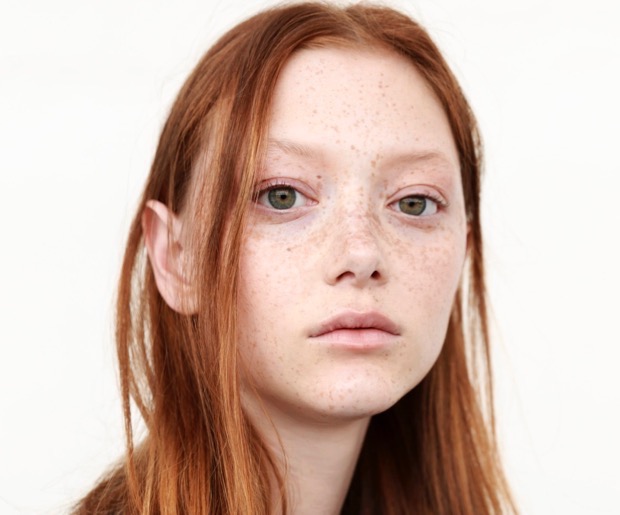You probably already have a dermatologist. But what about a doctor who specializes in psychodermatology? Psychodermatology "addresses the emotional/psychological needs of patients that suffer from dermatological conditions," explains Dr. Francisco Tausk, professor of dermatology, allergy, immunology and rheumatology at the University of Rochester. "Basically, when a patient comes to the dermatologist's office, we explore the emotional issues that could be associated to the skin problem since up to 30 percent of the dermatology consults involve skin problems that are directly associated or worsened by psychiatric issues."
With more than 30 years of professional experience under his belt, Tausk is one of the experts behind LOUM, a new skin care brand that aims to reverse the impact stress has on our skin. So we spoke with the good doctor about the mind-skin connection and how stress can reflect on your complexion.

Image via Imaxtree
Total Beauty: How does stress impact our skin?
Dr. Francisco Tausk: Stress affects every organ of the body through the secretion of epinephrine/norepinephrine from the adrenal glands and nerves, cortisol from the adrenal and possibly from the skin and neuropeptides, such as substance P and calcitonin gene-related peptide (CGRP) among many. So stress makes every health condition worse (think heart attacks, hypertension, gastric ulcers, etc.). When the above mentioned effectors of stress are increased in the skin, there is skin aging, inflammation, dullness and dryness. Skin diseases like acne, rosacea, psoriasis, seborrheic dermatitis and eczema get worse with chronic stress.
TB: What other psychological factors affect skin?
FT: Many psychological factors can affect the skin. For example, patients that suffer from obsessive compulsive disorder (OCD) tend to pick, scratch and squeeze any imperfection in the skin. Others will pick on the skin without any inciting factor. They are classified as having "skin picking" behavior together with those individuals that pull their hair, aka trichotillomania. These are all individuals that are conscious of their self-mutilating acts and need help to modify their behavior. Yet another group of patients will engage in the same acts without any consciousness of doing it and the result is numerous ulcerations in the skin. This is called factitious dermatitis and is much more difficult to approach since the subjects deny that they are producing the lesions. On another note, depression can act through very similar channels as stress resulting in similar skin irritation.
TB: How important is the mind-skin connection?
FT: In general, people are not aware of the extent to which the mind and the skin are connected. The brain reaches the skin through the nerves that reach the very most superficial areas of the skin. They deposit in the skin neuropeptides and norepinephrine, which are the main effectors of the peripheral stress response. People are also not aware that they can also approach a number of skin conditions through changes in the mind, such as therapy, meditation and hypnosis.
TB: What are the best ways to reduce stress?
FT: Whatever works within the overall makeup and belief system of an individual. There is no one size fits all. For some it is exercise. For others, psychotherapy, meditation, yoga, biofeedback, hypnosis, self-hypnosis, apps (like Headspace), praying or the many other different practices.
TB: What are your favorite products for alleviating the effects of stress on skin?
FT: LOUM developed a product line containing the ingredients in Tri-Serene with the intention of addressing the effects of stress on the skin.